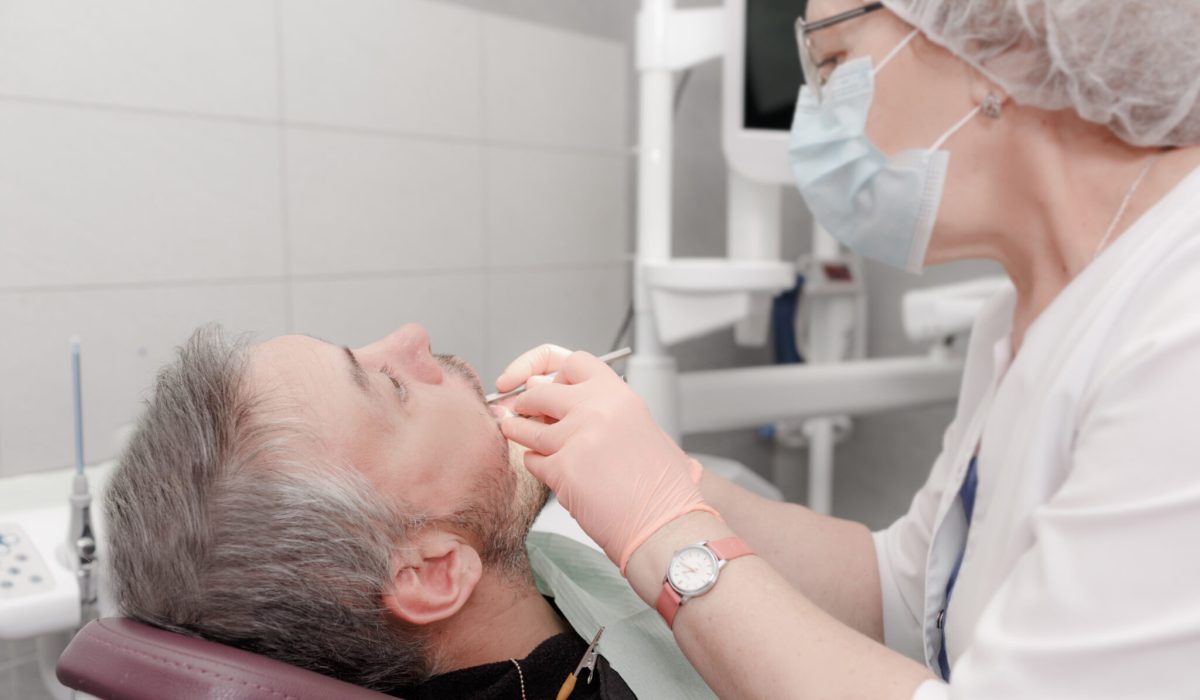If you’re considering replacing a missing tooth, you may wonder if a dental implant is the right choice. Single implants are a popular and effective treatment to replace a natural tooth. They offer many benefits that can enhance oral health and well-being.
In this article, we’ll explore whether single-tooth implants are the right choice for you and provide you with the information you need to make an informed decision. So let’s dive in and explore the benefits and the dental implant costs.

Table of Contents
ToggleSummary of the Content:
- Single-tooth dental implants are an effective and long-lasting solution for replacing missing teeth.
- Implant-supported crowns are customised to match your natural teeth and made of high-quality materials for lasting results.
- Dental implants offer superior aesthetics, functionality, and durability than dental bridges and partial dentures.
- Factors influencing single-tooth dental implants’ success include your oral health and the importance of professional dental care.
- Discuss dental implant costs with your dentist to better understand this procedure’s financial commitments.
Understanding the Single-Tooth Dental Implant Procedure
Dental implant surgery: What to expect
Understanding the procedure can help ease any apprehension when getting a single-tooth dental implant. Dental implant surgery is an invasive procedure that involves several stages, each with its own consideration.
First, your dentist will thoroughly examine your oral health, including X-rays and scans, to determine whether you’re suitable for a dental tooth implant. If you are, the implant process beings with the surgical placement of the implant into your jawbone. This is usually done under local anesthesia to minimise discomfort, some people may also opt for sedation do decrease anxiety and keep calm during the procedure.
The implant acts as an artificial tooth root, providing a stable foundation for the replacement tooth. Over time, the implant will fuse with the jaw bone through osseointegration, which can take several months. Once the implant has integrated with the bone, an abutment is attached to the implant to support the crown or the visible part of the tooth.
Aftercare and recovery
After the dental implant surgery, proper aftercare and recovery are crucial for the success of the implant. Your dentist will provide specific instructions on caring for the implant site, including oral hygiene, practises such as brushing and flossing and any dietary restrictions necessary during the healing process.
You may experience some swelling, bruising, and discomfort in the days following the surgery, which can be managed with over-the-counter pain medications or as prescribed by your dentist. Attending all follow-up appointments with your dentist is essential to monitor the healing progress and ensure the implant integrates well with the jawbone.
During recovery, it’s also essential to avoid smoking, excessive alcohol consumption, and any activities that may put undue pressure on the implants, such as chewing hard or sticky foods. Following your dentist’s aftercare instructions diligently and maintaining good oral hygiene practices will promote proper healing and increase the success rate of your implant treatment.
Understanding the recovery process and adhering to proper aftercare and recovery instructions are crucial for a successful outcome. It is recommended to seek advice from a qualified dental professional to assess your eligibility for single implants and to obtain guidance during the procedure.
The Benefits of Single-Tooth Dental Implants
If you’re missing a tooth, a dental implant is an excellent option for restoring your smile and improving your oral health. Here are some of the benefits of dental implants:
Natural appearance and function
One of the most significant benefits of dental is their natural appearance and function. Unlike dentures or bridges, dental implants are designed to look and feel like natural teeth. They’re custom-made to match the shape, size, and colour of your existing teeth, ensuring a seamless and natural-looking smile. Additionally, dental implants are fixed to your jawbone, allowing you to eat, speak, and smile confidently.
Preserving jawbone health
When you lose a tooth, the bone in your jaw where the tooth used to be begins to deteriorate. This process can lead to further tooth loss and changes in your facial structure. However, dental implants help preserve the health of your jawbone as they stimulate the jawbone and decrease the risks of bone loss.
Long-term durability
Another benefit of dental implants is their long-term durability. A dental implant can last more than 25 years with proper care and maintenance. Dental implants offer a more durable option for missing teeth compared to traditional dentures or bridges that require replacement every 5 to 10 years.
Implant-Supported Crowns: The Perfect Match for Single-Tooth Dental Implants
Single-tooth implants are a popular option for replacing missing teeth, and implant-supported crowns offer an ideal solution for restoring the function and aesthetics of your smile. Here are two essential things to know about implant-supported crowns:
Customised to match your smile
Implant-supported crowns are customised to match your teeth’ natural colour and shape, resulting in a seamless and natural-looking smile. Your dentist will take impressions of your teeth to ensure the crowns fits snugly and blends in with the rest of your teeth. Customisation ensures the crown looks and feels like a natural tooth, improving your confidence and self-esteem.
High-quality materials for lasting results
Implant-supported crowns are made from high-quality materials like porcelain and zirconia that offer durability and longevity. The materials have the ability to endure biting pressure, resist staining and discoloration, and provide an aesthetically pleasing and long-lasting result.
Comparing Dental Implants to Other Tooth Replacement Options
You can take a few different routes for single-tooth replacement. While dental implants offer a long-lasting and natural-looking solution, dental bridges and partial dentures are common choices. Here’s a closer look at each option:
Dental bridges
Dental bridges are a tooth replacement option that involves attaching a false tooth to adjacent teeth. This is done by creating dental crowns for the adjacent teeth and then connecting them to the false tooth in the middle. While this option can solve missing teeth, it has a few downsides.
One of the primary disadvantages of dental bridges is that they require healthy adjacent teeth to support the false tooth. This can mean that healthy teeth must be altered, increasing the risk of future dental problems. Dental bridges only last 5 to 15 years, which may need replacing.
Partial dentures
Partial dentures are another tooth replacement option that involves a removable dental appliance. This appliance is custom-fitted to your mouth and includes a false tooth (or teeth) to replace missing teeth. While removable dentures can be a cost-effective solution, they have limitations.
One major downside of partial dentures is they can be uncomfortable and cause irritation or sore spots in the mouth. Additionally, they can make it difficult to eat certain foods and may need to be adjusted or replaced over time. Partial dentures also don’t provide the same level of stability as artificial tooth implants, making them feel less secure in the mouth.
While dental bridges and partial dentures may be viable options in some cases, they come with downsides. It’s important to discuss your options with a dental professional to determine the ideal solution for your individual needs. Remember that while the cost of implants may be higher than other tooth replacement options upfront, the long-term benefits often outweigh the initial investment.
Factors Influencing the Success of Single-Tooth Dental Implants
When considering a dental implant, it’s essential to understand that the procedure’s success relies on several factors. Here are two key factors that can influence the success of your single implant:
Your overall oral health
Before dental implants, your dentist will evaluate your oral health to ensure you’re an ideal candidate. This evaluation will include thoroughly examining your teeth and gums and any previous dental work you may have had. If you have any underlying dental issues, such as gum disease, or tooth decay, these must be addressed before the implant procedure can be performed. Maintaining good oral hygiene and attending regular dental check-ups are important to ensure your implant stays healthy and functional.
The importance of professional dental care
After your surgical procedure, it’s crucial to maintain regular dental appointments to ensure the long-term success of your implant. Your dentist will monitor the implant and surrounding areas to detect potential issues early. They may also recommend additional treatments or modifications to ensure the implant remains healthy and functional. By following their recommendations and maintaining good oral hygiene, you can help ensure the success of your single-tooth dental implant.
Costs and Financing Options for Single Tooth Dental Implants
When considering a dental implant procedure, the cost is one of the top concerns for patients. Understanding the expenses involved is essential so you can plan and budget accordingly. Here are some key factors that cost of single-tooth dental implants
Understanding the costs
The cost of a single tooth implant can vary depending on several factors, like the dental clinic’s location, the procedure’s complexity, and the material used. Generally, a single-tooth dental implant procedure in Australia can range from $3000 to $6500.
Other costs include the initial consultation, diagnostic tests such as X-rays to CT scans, bone grafting, and the restoration (dental crown or bridge) placed on the implant.
On average, bone grafting can cost anywhere from $500 to $3,000 per implant site. It’s best to consult with your dentist to get an accurate estimate of the cost of a bone graft procedure and other treatments related to dental implant surgery.
Discussing the dental implant costs with your dentist before proceeding with the treatment plan is essential.
Flexible payment plans
The cost of dental implants can be a significant investment. That’s why many dental clinics offer flexible payment options to help make dental treatment more affordable. Some options include payment plans that allow you to spread the cost of the treatment over some time or financing options such as interest-free loans or credit lines.
Discussing these options with your dental provider to find the right financing plan that suits your budget and needs is important. Dental implants offer a long-term solution for missing teeth, making it worthwhile to improve your dental health.
Final Thoughts
Single-tooth dental implants are an excellent option for seeking a natural-looking, long-lasting tooth replacement. Dental implants offer various life benefits, including the procedure itself and the crowns that are supported by the implants. Factors like oral health and professional dental care are crucial in ensuring the success of dental implants.
If you’re considering single-tooth dental implants, look no further than Smiles in Currambine! Our qualified team will provide comprehensive evaluations and discuss your dental implant options to help you achieve your smile goals. Contact us today to schedule an appointment at your preferred time and take the first step towards a healthy, beautiful smile!

Dr Saket Rai
Dr. Saket Rai is a passionate dentist with over 15 years of experience in general dentistry. He specializes in dental implants, wisdom teeth removal, laser dentistry, cosmetic dentistry, and Digital Smile Design. With a Bachelor of Dental Surgery degree and a Masters in Forensic Odontology, he stays updated with the latest dental technology and techniques. Dr. Rai has extensive training in dental implants and believes in continuous professional development to provide the highest standard of care. Outside of dentistry, he enjoys spending time with his two boys and has interests in reading, documentaries, and cricket.








